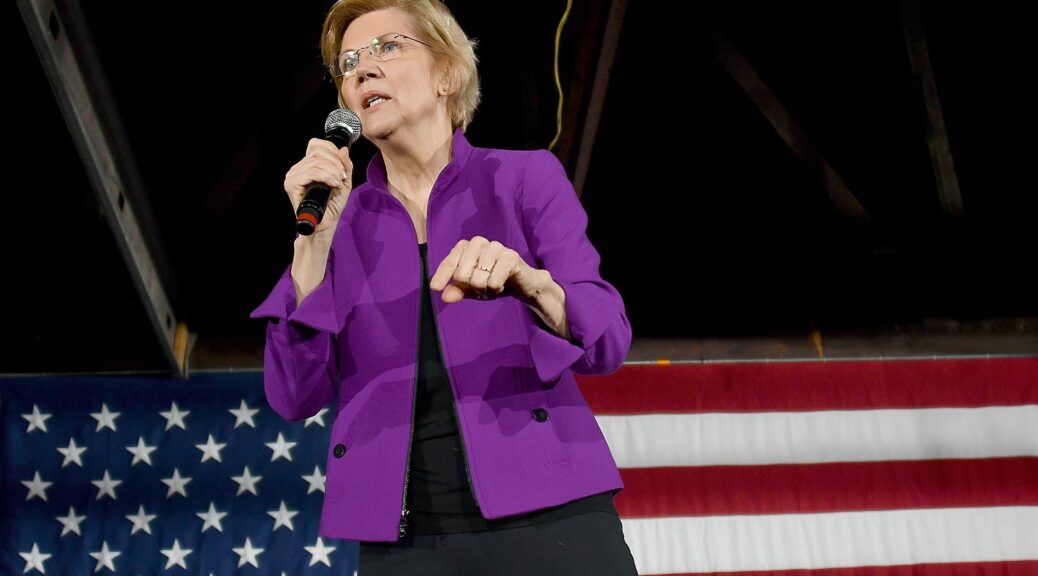New Pro-Climate, Pro-Worker Actions Create Jobs and Harness the Bipartisan Infrastructure Law, Federal Purchasing Power, and Trade Policy

We publish these fact sheets – long, detailed – from the White House to counter the disinformation that the Biden Administration “isn’t doing anything”- especially on the issues that matter most to progressives, like climate action, jobs, workers rights and income growth aimed at reducing the enormous wealth gap. In fact, on almost a daily basis, the administration – without the help of a paralyzed, dysfunctional Congress – is accomplishing significant reforms and innovations to benefit the daily lives of Americans.- Karen Rubin/news-photos-features.com
Today, the Biden-Harris Administration is announcing new actions across agencies to support American leadership on clean manufacturing—including low-carbon production of the steel and aluminum we need for electric vehicles, wind turbines, and solar panels, and the clean concrete we need to upgrade our transportation infrastructure. These actions will create more good-paying jobs and follow on a historic comeback for American factories, with 367,000 manufacturing jobs added during President Biden’s first year in office, the most in nearly 30 years. Further strengthening our industrial base will revitalize local economies, lower prices for consumers, provide more pathways to the middle class through union jobs, and boost American competitiveness in global markets.
The industrial sector is also central to tackling the climate crisis, as it is currently responsible for nearly a third of domestic greenhouse gas emissions. By helping manufacturers use clean energy, efficiency upgrades, and other innovative technologies to reduce emissions, the Administration is supporting cleaner industry that can produce the next generation of products and materials for a net-zero economy. These same manufacturing improvements will also protect public health, by reducing releases of air and water pollutants and toxic materials that disproportionately harm low-income households and communities of color.
Today’s announcements will clean up industrial processes that have long been challenging sources of pollution; create good-paying, union jobs across American manufacturing; and use domestic procurement and global trade policy to reward clean, American-made materials:
- The Department of Energy is launching major clean hydrogen initiatives of the Bipartisan Infrastructure Law: $8 billion for Regional Clean Hydrogen Hubs that will create jobs to expand use of clean hydrogen in the industrial sector and beyond; $1 billion for a Clean Hydrogen Electrolysis Program to reduce costs of hydrogen produced from clean electricity; and $500 million for Clean Hydrogen Manufacturing and Recycling Initiatives to support equipment manufacturing and strong domestic supply chains.
- The Council on Environmental Quality and White House Office of Domestic Climate Policy are establishing the first-ever Buy Clean Task Force, which will harness the federal government’s massive purchasing power to support low-carbon materials made in American factories. The General Services Administration and the Department of Transportation are also announcing new efforts to promote use of low-carbon materials in construction projects funded by the Bipartisan Infrastructure Law, and the State Department and U.S. Special Presidential Envoy for Climate are securing corporate purchasing commitments for low-carbon materials and technologies through the First Movers Coalition.
- The Administration is advancing carbon-based trade policies to reward American manufacturers of clean steel and aluminum. Working with the European Union, the Administration is taking steps to align global trade with climate goals, which will keep out dirty products and result in more jobs and lower prices for Americans.
- The Council on Environmental Quality is issuing new guidance on responsible deployment of Carbon Capture, Utilization, and Sequestration (CCUS) technologies that can reduce emissions from heavy industry and help us achieve a net-zero economy. This guidance will support CCUS projects that create union jobs and protect communities from cumulative pollution impacts. Actions by agencies will incorporate environmental justice considerations across CCUS activities.
- To equitably advance innovation across the entire sector, the White House Office of Science and Technology Policy is launching a new Initiative for Interdisciplinary Industrial Decarbonization Research with a focus on benefitting American workers and communities. The Department of Energy is working to establish the Industrial Technology Innovation Advisory Committee (ITIAC) to bring together a diverse group of stakeholders charged with creating a comprehensive strategy to lower the carbon footprint of America’s industrial base.
These actions and continued implementation of the Bipartisan Infrastructure Law will reduce climate pollution from industrial facilities, while growing the economy and creating jobs in producing clean materials—which customers around the world are increasingly demanding.
With a strong foundation in place from today’s announcements, the President’s Build Back Better agenda will further boost clean manufacturing and American competitiveness for decades to come, by supporting low-carbon processes across our industrial base; driving long-term investment in our clean steel, cement, and aluminum industries; and increasing domestic production of electric vehicles, wind turbines, solar panels, and more. Earlier this month, the House passed the America COMPETES Act, which would strengthen supply chains, lower prices, and create more manufacturing jobs, while decarbonizing the industrial sector—including through a $250 million Regional Clean Energy Innovation Program and new programs to decarbonize American steel.
Specifically, today the Administration is announcing new efforts on:
Accelerating Clean Hydrogen
Clean hydrogen can reduce emissions in many sectors of the economy, and is especially important for hard-to-decarbonize sectors and industrial processes, such as steel manufacturing. But clean hydrogen is not yet in widespread use. Targeted investments can help reduce costs, make new breakthroughs, and create jobs for American engineers, factory workers, construction workers, and others.
To seize those opportunities, today the Department of Energy (DOE) is launching three major new initiatives of the Bipartisan Infrastructure Law by issuing Requests for Information:
- $8 billion for Regional Clean Hydrogen Hubs: DOE will support development of networks of clean hydrogen producers, potential consumers, and connective infrastructure. These regional hubs will advance the production, processing, delivery, storage, and end-use of clean hydrogen, including innovative uses in the industrial sector. DOE will prioritize hubs that can provide significant training and long-term job opportunities for residents of the region.
- $1 billion for a Clean Hydrogen Electrolysis Program: Electrolysis (using electricity to split water into hydrogen and oxygen) allows for clean hydrogen production from carbon pollution-free power sources like wind, solar, and nuclear. This program will improve the efficiency and cost-effectiveness of these technologies, by supporting the entire innovation chain—from research, development, and demonstration to commercialization, and deployment.
- $500 million for Clean Hydrogen Manufacturing and Recycling RD&D Activities: DOE will also support American manufacturing of clean hydrogen equipment, including projects that improve efficiency and cost-effectiveness and support domestic supply chains for key components, through the Bipartisan Infrastructure Law’s Clean Hydrogen Manufacturing Initiative. DOE is also launching Clean Hydrogen Technology Recycling Research, Development, and Demonstration activities, to fund innovative approaches to increase the reuse and recycling of clean hydrogen technologies.
These Requests for Information will gather feedback from stakeholders and communities on future implementation and priorities for DOE to consider as it moves forward with maximizing the benefits of the historic clean hydrogen programs in the Bipartisan Infrastructure Law.
To further support DOE’s Hydrogen Shot to reduce the cost of clean hydrogen by 80% to $1 for one kilogram in one decade, last week DOE announced $28 million for R&D and front-end engineering design projects to advance clean hydrogen in industrial uses, as well as the transportation and electricity sectors. DOE’s new H2 Matchmaker resource is helping clean hydrogen producers, end-users, and others find opportunities to develop networks of production, storage, and transportation infrastructure. H2 Matchmaker displays a map using information received through an online form, which stakeholders can use to connect with others nearby.
The Administration’s Interagency Working Group on Coal and Power Plant Communities and Economic Revitalization is bringing together stakeholders from across the private sector, philanthropy, labor, and community-based organizations to catalyze new job opportunities for energy communities, including in clean hydrogen. For example, a December roundtable included discussion of efforts to reduce emissions and create jobs in the South Louisiana industrial corridor. The region is a finalist in the Economic Development Administration’s Build Back Better Regional Challenge. An initial grant will help them continue to plan their clean hydrogen cluster, and they are eligible to apply for a Phase 2 implementation grant.
Launching “Buy Clean” Procurement
The federal government is the largest purchaser in the world, with annual purchasing power of over $650 billion. To harness that power to support low-carbon, made in America materials, the Council on Environmental Quality and White House Office of Domestic Climate Policy are establishing the first-ever Buy Clean Task Force. As directed by the President’s December 2021executive order on federal sustainability, the Task Force will promote use of construction materials with lower embodied emissions and pollutants across their lifecycle—including each stage of the manufacturing process.
Other members include the Departments of Defense, Energy, and Transportation; the Environmental Protection Agency; the General Services Administration; and the White House Office of Management and Budget. The Task Force, which will continue to expand, is convening to develop recommendations on:
- Identifying materials, such as steel and concrete, as well as pollutants to prioritize for consideration in Federal procurement and federally funded projects
- Increasing the transparency of embodied emissions through supplier reporting, including incentives and technical assistance to help domestic manufacturers better report and reduce embodied emissions
- Launching pilot programs to boost federal procurement of clean construction materials
With the Buy Clean Task Force now established, the federal government is at the leading edge of using public procurement to increase demand for cleanly manufactured materials, along with states including California, Colorado, Minnesota, New York, and Washington.
Buy Clean efforts are already well underway at the General Services Administration (GSA), which manages a nationwide federal real estate portfolio and oversees approximately $75 billion in annual contracts. Over the past year, GSA has actively engaged stakeholders to learn and adopt best practices for reducing embodied emissions of buildings and materials. Today, GSA is issuing Requests for Information (RFIs) focused on concrete and asphalt. In the coming weeks, GSA will use the RFI responses to shape the launch of national low-carbon concrete and sustainable asphalt standards for Land Port of Entry projects funded by the Bipartisan Infrastructure Law. This groundbreaking effort may include requiring Environmental Product Declarations (disclosing lifecycle impacts) and the use of concrete with at least 20% lower global warming potential, whenever available.
The Department of Transportation (DOT) is announcing new efforts to support use of low-carbon materials in federal transportation projects. A new pilot program will target key products and services to increase use of Environmental Product Declarations and incentivize acquisition of low-carbon materials. Additionally, DOT is standing up a Department-wide Embodied Carbon Working Group to assess and implement actions to reduce lifecycle emissions of construction materials used in transportation infrastructure.
The Administration is also bringing together large corporate purchasers to Buy Clean. At COP26, President Biden launched the First Movers Coalition, with 34 companies valued at $6 trillion—the biggest demand signal in history for innovation across hard-to-abate sectors, including heavy industry. Led by the State Department through the U.S. Special Presidential Envoy for Climate and the World Economic Forum, and supported by the Departments of Commerce and Energy, the First Movers Coalition is making clean purchasing commitments, beginning with steel, shipping, trucking, and aviation. Today, the Administration is announcing plans to expand the First Movers Coalition to cover four additional sectors in 2022: aluminum, cement, chemicals, and carbon removal.
The Administration is also mobilizing investment in the production of clean technologies by the Department of Energy, including the Loan Programs Office, the Department of Commerce, and the U.S. International Development Finance Corporation, as well as through a partnership between the First Movers Coalition and the Breakthrough Energy Catalyst. The First Movers Coalition will recruit additional companies and launch challenge competitions for suppliers to provide the breakthrough technologies that members have committed to purchase.
Using Trade Policy to Reward Clean Manufacturing
In October, the United States and the European Union announced their commitment to negotiate the world’s first emissions-based sectoral arrangement on steel and aluminum trade by 2024. Following on that announcement, Secretary of Commerce Gina Raimondo, U.S. Trade Representative Katherine Tai, and senior White House officials are continuing to work with European Union counterparts on this unprecedented effort—never before have two global partners aligned their trade policies to confront the threats of climate change and global market distortions, ensuring that trade works to solve the challenges of the 21st century.
Together, the United States and European Union are working to restrict access to their markets for dirty steel and limit access to countries that dump steel in both markets, contributing to worldwide over-supply. The arrangement will be open to any interested country that wishes to join and meets criteria for restoring market orientation and reducing trade in high-emissions steel and aluminum products. It will thus drive investment in green steel and aluminum production in the United States, Europe, and around the world, ensuring a competitive U.S. steel and aluminum industry for decades to come.
Responsibly Advancing CCUS Technologies
Carbon Capture, Utilization, and Sequestration (CCUS) refers to technologies that remove carbon pollution from point sources like smokestacks, or from the ambient air, and permanently store the carbon. In factories, CCUS can reduce emissions from chemical reactions and high-temperature processes that are difficult and expensive to electrify. The best scientific analyses also find that to achieve a net-zero economy, we will need to remove carbon pollution that has already been released in the atmosphere. While CCUS can be an important tool in tackling the climate crisis, the benefits and impacts of potential projects vary significantly—requiring careful planning and oversight to ensure deployment is safe, equitable, and environmentally sound.
To help federal agencies advance CCUS responsibly, today the Council on Environmental Quality is issuing CCUS guidance. This guidance, called for in the bipartisan USE IT Act, builds on CEQ’s June 2021 CCUS report and addresses issues including:
- Sound and transparent environmental reviews for CCUS projects
- Incorporation of environmental justice and equity considerations to protect overburdened communities from any direct, indirect, and cumulative impacts
- Meaningful public engagement and Tribal consultations from early in the process
- Opportunities to create good-paying, union jobs and training programs
- Life cycle analyses of carbon capture and utilization (CCU) and carbon dioxide removal (CDR) projects
As agencies prepare to implement more than $12 billion in CCUS investments provided by the Bipartisan Infrastructure Law, this guidance will promote projects informed by community perspectives and aligned with climate, public health, and economic goals.
To further support responsible deployment:
- The Environmental Protection Agency is developing proposed rule revisions to strengthen the Greenhouse Gas Reporting Program to improve transparency on CCUS activities. This Program collects and publishes annual greenhouse gas data from large industrial sources, and the proposed updates would add reporting requirements for direct air capture and carbon storage.
- To train a racially diverse, highly skilled generation of engineers and scientists for carbon management roles, DOE is announcing $5 million for university training and research projects, including $2 million for Historically Black Colleges and Universities (HBCUs) and other Minority Serving Institutions (MSIs).
- The Federal Permitting Improvement Steering Council and its member agencies are working together to facilitate collaborative CCUS project reviews.
- The Department of the Interior is working to establish safeguards for geologic sequestration on federally managed lands and is developing new regulations for geologic sequestration in the outer continental shelf as required under the Bipartisan Infrastructure Law.
Supporting Equitable Innovation Across the Industrial Sector
Supporting the industrial sector to achieve net-zero emissions will provide benefits to communities across the country. To ensure that innovations in this sector meet the needs of diverse stakeholders, the Administration is launching a new Initiative for Interdisciplinary Industrial Decarbonization Research. Led by the White House Office of Science and Technology Policy (OSTP), this Initiative will bring together social scientists, engineering and physical scientists, community groups, industry, government, and other stakeholders. As a first step, OSTP is convening a workshop to get advice from social science thought leaders about the research agenda needed to support rapid, widespread industrial decarbonization. This research will help build the consensus necessary to ensure a just transition to clean industry, with new, good-paying jobs for American workers and health and economic benefits for communities.
To identify and catalyze the next generation of breakthroughs, DOE’s Advanced Manufacturing Office is launching the Industrial Technology Innovation Advisory Committee (ITIAC). This federal advisory committee will bring together a diverse cross-section of the industrial sector to find viable decarbonization pathways that will equitably benefit the industrial workforce and surrounding communities. DOE has also issued a Request for Information on Industrial Decarbonization. This RFI will provide insights on emerging technologies for industry to demonstrate or adopt, including for clean production of iron and steel, cement, chemicals, and food and beverages. The Advanced Manufacturing Office will use this information to shape priorities for reducing industrial emissions and increasing competitiveness.
Additionally, DOE is helping manufacturers optimize use of energy and materials while training the workforce of the future through its Industrial Assessment Centers—which provide no-cost energy assessments conducted by university-based teams of engineering students and faculty. Through the Bipartisan Infrastructure Law, DOE will expand the Industrial Assessment Centers program by offering specialized training to staff and students and increasing access to innovation and workforce development opportunities, particularly in disadvantaged communities. These actions build on a year of progress—in 2021, DOE’s Advanced Manufacturing Office invested more than $332 million in industrial technical assistance, education and workforce development, and R&D at every stage of the supply chain.
The Environmental Protection Agency (EPA) is also partnering with manufacturers through the ENERGY STAR program, which challenges and supports industrial plants in improving energy efficiency and reducing greenhouse gas emissions. EPA is now expanding ENERGY STAR by incorporating carbon intensity metrics for certain industries. Going forward, EPA will continue to increase ENERGY STAR’s focus on ambitious emissions reductions that support net-zero goals across the industrial sector.



